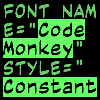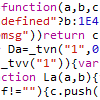 Hi all! I suppose it’s not hard to notice that this site hasn’t been updated in a while. Truth to tell, I’ve been kept pretty busy with social media, not to mention that most of my time over the last two years or so has been taken up by my day job as a reporter for The Register.
Hi all! I suppose it’s not hard to notice that this site hasn’t been updated in a while. Truth to tell, I’ve been kept pretty busy with social media, not to mention that most of my time over the last two years or so has been taken up by my day job as a reporter for The Register.
Still, since this site is the quickest way to find me with a Google search, I thought it worth mentioning here that I’m no longer with El Reg, so you needn’t bother trying to contact me there. I wish the gang at the Vulture Annex in San Francisco all the best.
As for what I’ll be doing next, that’s actually undecided at the moment. (If you have any ideas on that score, let me know.) For the time being, though, I’m content to take a breather, enjoy some hobbies, catch up on some reading, and so on. I’ll post any significant updates to this site (and I also plan to do some general housekeeping, because it’s sure looking dusty around here).
Thank you to any visitors who have stopped by while I was away, particularly those of you who took the time to drop me a line. Sorry if I was late/unable to respond. All the best!

 I just love this.
I just love this.  Welcome to 2012! Once again, I’ve been remiss in keeping this blog updated, but I’ll try to do better this year. Remember you can always follow the latest from my Fatal Exception blog for InfoWorld in the box to the right!
Welcome to 2012! Once again, I’ve been remiss in keeping this blog updated, but I’ll try to do better this year. Remember you can always follow the latest from my Fatal Exception blog for InfoWorld in the box to the right! With the rise of HTML5, a lot of folks wonder whether it might displace plug-ins such as Adobe Flash for rich Internet Application development. Adobe doesn’t see it quite that way. It sees the two technologies as complementary, and it’s putting its money where its mouth is. Adobe Edge is a new technology from Adobe Labs that aims to make it as easy to build complex animations in HTML5, CSS, and JavaScript as it is to do the same in Flash. It’s still rough around the edges, but it does make it possible to do some pretty remarkable things, especially if your goal is to develop banner ads, infographics, or other short animated sequences to be embedded in Web pages. Read on for more of
With the rise of HTML5, a lot of folks wonder whether it might displace plug-ins such as Adobe Flash for rich Internet Application development. Adobe doesn’t see it quite that way. It sees the two technologies as complementary, and it’s putting its money where its mouth is. Adobe Edge is a new technology from Adobe Labs that aims to make it as easy to build complex animations in HTML5, CSS, and JavaScript as it is to do the same in Flash. It’s still rough around the edges, but it does make it possible to do some pretty remarkable things, especially if your goal is to develop banner ads, infographics, or other short animated sequences to be embedded in Web pages. Read on for more of  Seven years after its IPO, Google is entering the next phase of its growth as a company. It’s impressively large by anyone’s standards, with $29.3 billion in revenue in 2010, nearly 30,000 full-time employees, and offices in 42 countries. And yet Larry Page, now Google’s CEO for the first time since 2001, still seems to view the company as a cross between a startup and his old Stanford University grad project. It’s neither, and it faces difficult challenges. The legal environment around Google is tightening even as it goes head-to-head with the industry’s largest companies, and the changes it must make to remain competitive may mean tomorrow’s Google little resembles the fun-loving Silicon Valley darling of yesteryear. Read on for the rest of my analysis of
Seven years after its IPO, Google is entering the next phase of its growth as a company. It’s impressively large by anyone’s standards, with $29.3 billion in revenue in 2010, nearly 30,000 full-time employees, and offices in 42 countries. And yet Larry Page, now Google’s CEO for the first time since 2001, still seems to view the company as a cross between a startup and his old Stanford University grad project. It’s neither, and it faces difficult challenges. The legal environment around Google is tightening even as it goes head-to-head with the industry’s largest companies, and the changes it must make to remain competitive may mean tomorrow’s Google little resembles the fun-loving Silicon Valley darling of yesteryear. Read on for the rest of my analysis of  I’ve written a new version of my
I’ve written a new version of my